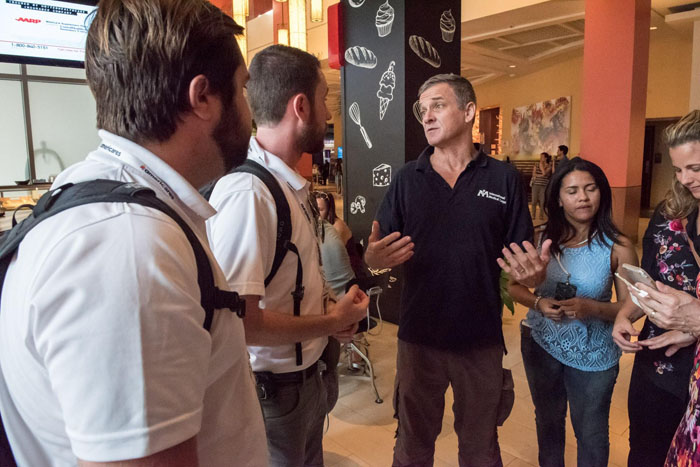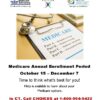
Dr. Rob Fuller, right, and Carrie Vopelak, left, hear about the state of the hospital's ER from Dr. Robles after Hurricane Maria. International Medical Corps is in Puerto Rico to assess the damage and help those suffering in the wake of the storm. PHOTO: KEN CEDENO / INTERNATIONAL MEDICAL CORPS
Robert Fuller has traveled in other disaster-ravaged areas -- Haiti after the 2010 earthquake, and Indonesia after the 2004 tsunami. And while other disasters have seen heavy loss of life on the front end of the event, Fuller said the Puerto Rican situation is different.
“This is the first time where I’ve seen such wall-to-wall, corner-to-corner, 100 percent population affected,” says Robert Fuller, just two days after his arrival on the island. “So many people are reliant on a health care delivery chain that’s been interrupted. That chain relies on power and fuel to move goods and meds to places where the patients can access them. The clinics where they might normally receive care in, likewise, need to be up and running.”
“If you don’t backfill that quickly, people will end up suffering,” Fuller said Wednesday morning. “The diabetics without their insulin will get sick and could perish as a result of this two weeks from now.”
Fuller is the head of emergency medicine at the University of Connecticut and is working on the ground with International Medical Corps, a California-based first-response organization.









